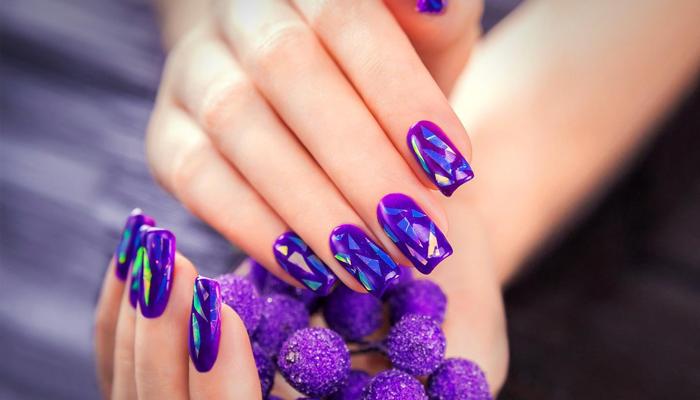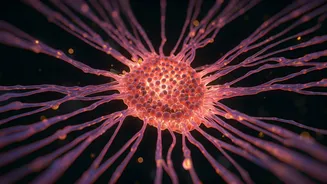Discover the secrets to healthy nails in our guide to perfect manicures at home. From hygiene to nutrition, we've got you covered!
Your hands are often the first thing people notice, and well-maintained
nails can make a great impression. But beyond aesthetics, healthy nails are a sign of overall well-being. Brittle, discolored, or ridged nails can sometimes indicate underlying health issues.
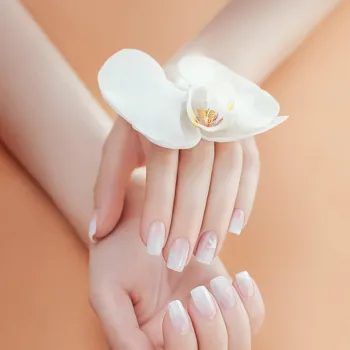
So, taking care of your nails is not just about looking good; it's also about ensuring your health. This article will guide you through simple yet effective tips to keep your nails healthy and achieve that perfect manicure look, all from the comfort of your home.
Maintain nail hygiene to prevent infections and promote nail health
Just like your skin, hygiene is paramount for nail health. Keeping your nails clean prevents the build-up of dirt, bacteria, and fungi, which can lead to infections. Wash your hands regularly with mild soap and water, paying attention to cleaning under your nails with a nail brush.

After washing, thoroughly dry your hands and nails, as moisture promotes fungal growth. When cutting your nails, use clean, sharp nail clippers or scissors. Trim your nails straight across and then gently round the corners to prevent ingrown nails.
Avoid cutting your cuticles, as they act as a barrier against infection. Instead, gently push them back with a cuticle pusher after soaking your hands in warm water. Sanitizing your nail tools is crucial to prevent the spread of germs.
Regularly clean your clippers, scissors, and cuticle pushers with rubbing alcohol or a disinfectant solution. This simple step can significantly reduce the risk of nail infections and keep your nails healthy and strong..
Proper hydration essential for healthy nails, drink water, use moisturizing creams/oils
Proper hydration is essential for overall health, and your nails are no exception. Just like your skin, nails can become dry and brittle if you are dehydrated. Make sure to drink plenty of water throughout the day to keep your nails moisturized from the inside out.
Using a good quality hand cream or nail oil can also help to hydrate your nails and cuticles. Look for creams and oils that contain ingredients like shea butter, jojoba oil, or almond oil, which are known for their moisturizing properties.
Apply the cream or oil several times a day, especially after washing your hands. Massaging the cream or oil into your cuticles helps to improve circulation and promote nail growth.
Consider using a humidifier, especially during dry seasons, to add moisture to the air and prevent your nails from drying out. Hydrated nails are less prone to breakage and splitting, resulting in stronger and healthier nails.
Choose nail products wisely to protect nail health and strength
The nail products you use can significantly impact the health of your nails. Harsh chemicals in some nail polishes, removers, and artificial nails can weaken and damage your nails over time.
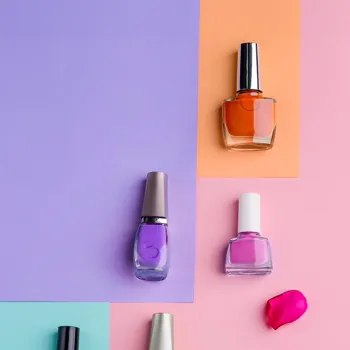
Opt for nail polishes that are labeled as "3-free," "5-free," or "7-free," which means they are formulated without harmful chemicals like formaldehyde, toluene, dibutyl phthalate (DBP), formaldehyde resin, and camphor.
When removing nail polish, use an acetone-free remover, as acetone can be extremely drying and damaging to your nails. If you frequently use nail polish, give your nails a break in between manicures to allow them to breathe and recover.
Avoid using artificial nails or nail extensions too often, as the application and removal process can weaken your natural nails. If you do opt for artificial nails, make sure they are applied and removed by a trained professional to minimize damage.
By choosing the right nail products, you can protect your nails from harmful chemicals and maintain their health and strength.
A balanced diet with key nutrients for strong nails
What you eat directly impacts the health of your nails. A balanced diet rich in vitamins and minerals is essential for strong and healthy nails. Certain nutrients are particularly important for nail health, including biotin, vitamin E, and omega-3 fatty acids.
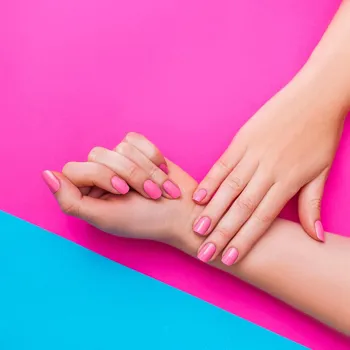
Biotin, also known as vitamin B7, is often touted as a nail-strengthening supplement. It helps to improve the structure of keratin, the protein that makes up your nails. Vitamin E is an antioxidant that helps to protect your nails from damage caused by free radicals.
Omega-3 fatty acids help to keep your nails moisturized and prevent them from becoming brittle. Include foods rich in these nutrients in your diet, such as eggs, nuts, seeds, leafy green vegetables, and oily fish.
You can also consider taking a multivitamin or a nail-specific supplement to ensure you are getting all the necessary nutrients. Remember to consult with a doctor or a registered dietitian before starting any new supplements or making significant changes to your diet.
Protect your nails from damage in daily activities
Everyday activities can take a toll on your nails. Exposure to harsh chemicals, frequent hand washing, and physical labor can weaken your nails and make them more prone to breakage. Wear gloves when doing housework, gardening, or any activity that involves prolonged exposure to water or chemicals.
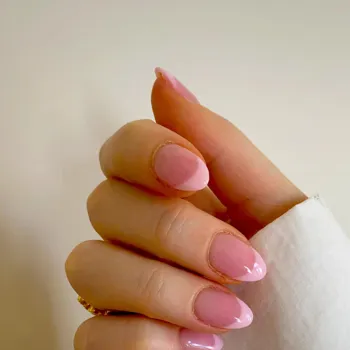
This will protect your nails from damage and prevent them from drying out. When typing or using your hands for repetitive tasks, be mindful of the pressure you are putting on your nails. Avoid using your nails as tools to open things or scrape off stickers, as this can cause them to break or split.
If you tend to bite your nails, try to break this habit, as it can damage your nails and increase the risk of infection. There are many strategies to help you stop biting your nails, such as applying a bitter-tasting nail polish or finding alternative ways to manage stress.
Protecting your nails from damage is an important part of maintaining their health and strength.
Prevent and treat common nail problems effectively
Despite your best efforts, you may still encounter common nail problems such as brittle nails, fungal infections, or ingrown nails. Brittle nails are often caused by dryness or exposure to harsh chemicals.
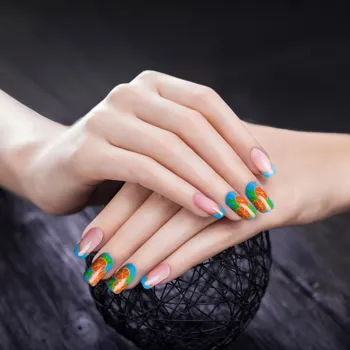
To combat brittle nails, keep your nails well-hydrated with hand cream and nail oil, and avoid using harsh nail products. Fungal nail infections can cause discoloration, thickening, and crumbling of the nails.
If you suspect you have a fungal nail infection, consult a doctor for diagnosis and treatment. Ingrown nails occur when the edges of your nails grow into the surrounding skin, causing pain and inflammation.
To prevent ingrown nails, trim your nails straight across and avoid cutting the corners too short. If you develop an ingrown nail, soak your foot in warm water and gently try to lift the edge of the nail.
If the ingrown nail is severe or doesn't improve, seek medical attention to have it properly treated. Early intervention can prevent complications and promote healing.
AI Generated Content. Glance/InMobi shall have no liability for the content